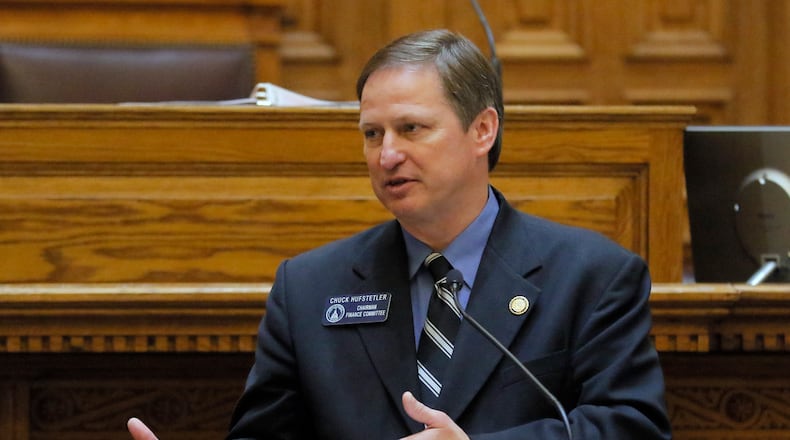The recession caused by the coronavirus pandemic has left lobbyists — who are used to spending the final days of General Assembly sessions peddling special-interest tax breaks — working twice as hard to hang onto them.
The state’s financial crisis has about three-dozen tax breaks lawmakers have approved over the years in peril as the General Assembly goes looking for money to mitigate massive spending cuts to everything from education and law enforcement to health care.
The Georgia Senate Finance Committee on Thursday approved legislation eliminating or reducing a laundry list of tax breaks in hopes of saving about $200 million. They did so without hearing any testimony from the dozens of lobbyists who got those tax breaks approved in the first place.
The original list to get trimmed included one that exempts manufacturers from paying sales taxes on energy they use in production, and another that spares air carriers such as Delta Air Lines from paying a sales tax on jet fuel.
Manufacturers told senators that eliminating the exemption could be a job killer, and it was removed from the hit list. As was the jet-fuel tax break for airlines, who have hired top Capitol lobbyists for years to push for it and keep it.
The measure won approval from the committee the day after Senate leaders came out with their plan to cut $2.6 billion in state spending next year because of the recession.
“We obviously have a tough budget this year,” said Senate Finance Chairman Chuck Hufstetler, R-Rome.
Hufstetler said if schools, law enforcement and health care programs are taking cuts, businesses benefiting from tax breaks should, too.
The pandemic has brought record unemployment, and thousands of businesses have either closed or are struggling to remain open.
That, in turn, has sent state tax collections — mostly for income and sales taxes — plummeting.
Lawmakers must, by law, pass a budget in the next few days for the fiscal year that begins July 1. Because legislators expect less revenue, they face cutting pretty much every area of state government about 11%, including $1 billion less for k-12 schools.
House Speaker David Ralston, R-Blue Ridge, has already voiced opposition to eliminating tax breaks, maintaining that businesses will cut more jobs without them.
Among those that would be eliminated or reduced:
- A tax credit that passed by one vote on the last night of the legislative session in 2017 aimed at creating jobs in rural Georgia. It passed after being heavily lobbied for years by a few out-of-state finance firms that make millions of dollars off the credits, and Hufstetler at the time called it a "bad investment scheme." Cutting the credits would save the state $6 million a year, which is what the state would save by furloughing child welfare workers next year under the Senate budget plan.
- A tax break on vehicles that are sold after being salvaged. It costs the state $19 million a year.
- Tax credits for companies building low-income housing. Senators said companies already receive big federal credits, so they want to cut the state tax break in half to save $60 million a year.
- Reducing the state's research tax credit would save $20 million. A large federal credit is already available, and "this is about the same as the amount the state spends on graduate medical school education," the Senate proposal said.
- A tax break for sales made to the Daughters of the American Revolution. "This does not have a statewide policy purpose," the Senate proposal said.
- A tax exemption for those playing coin-operated machines, which costs the state $32 million a year.
- Sales-tax exemptions on the sale of gold, silver or platinum bullion or currency by dealers, saving $2 million.
- Credits for the sale of mobile homes and sod grass, saving $8 million.
- A sales-tax exemption on contact lenses that could save $5 million. "This is roughly equivalent to 60 vacant state trooper positions," the Senate proposal said.
- A tax break for the owners of massive yachts when they get them retrofitted and repaired in Georgia. That measure was pushed by a Savannah lawmaker to help the Colonial Group, a local company that owned a yachting center and wanted to get into the repair business. The Senate proposal did not include an amount that would be saved.
About the Author
Keep Reading
The Latest
Featured


